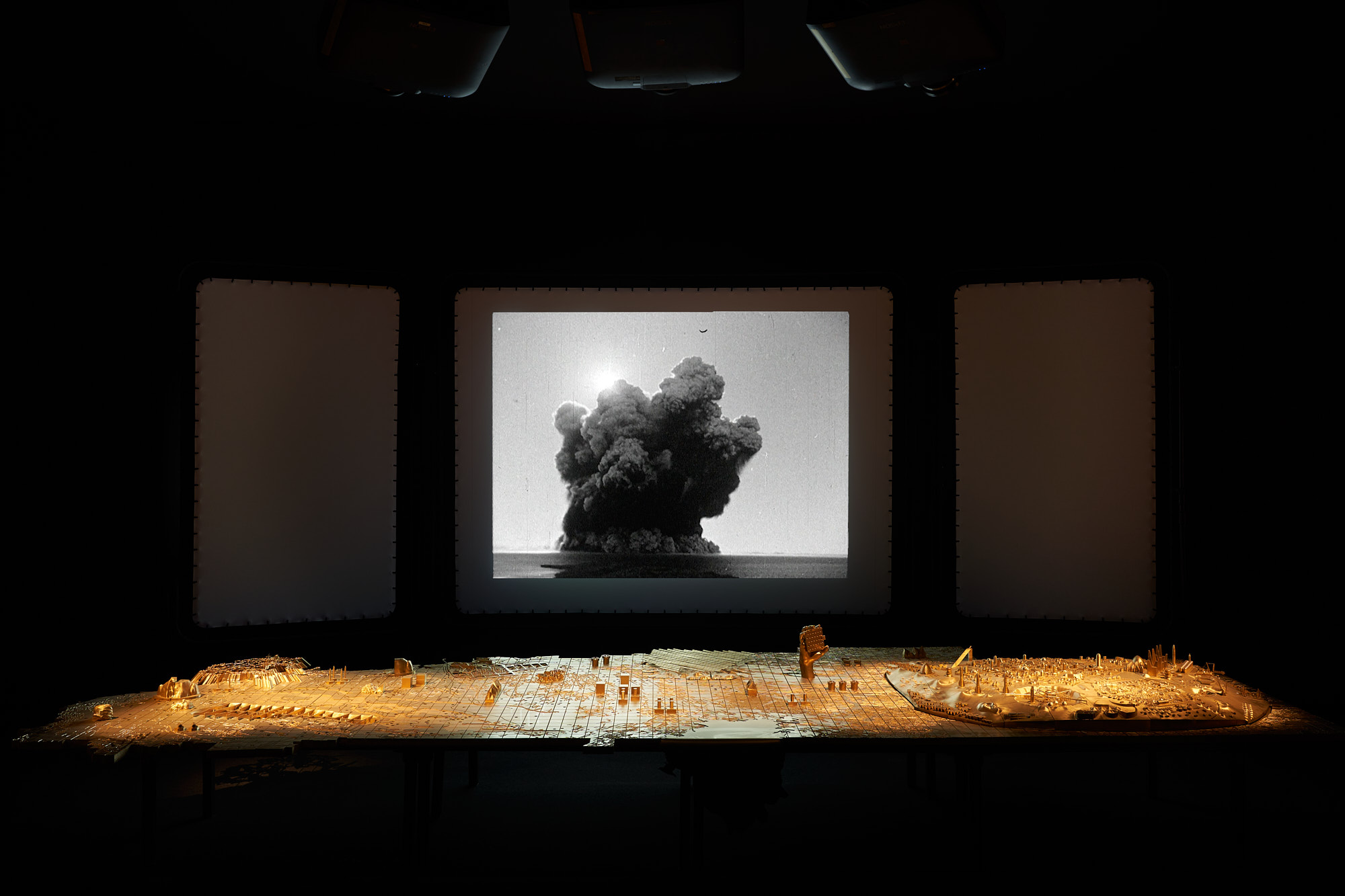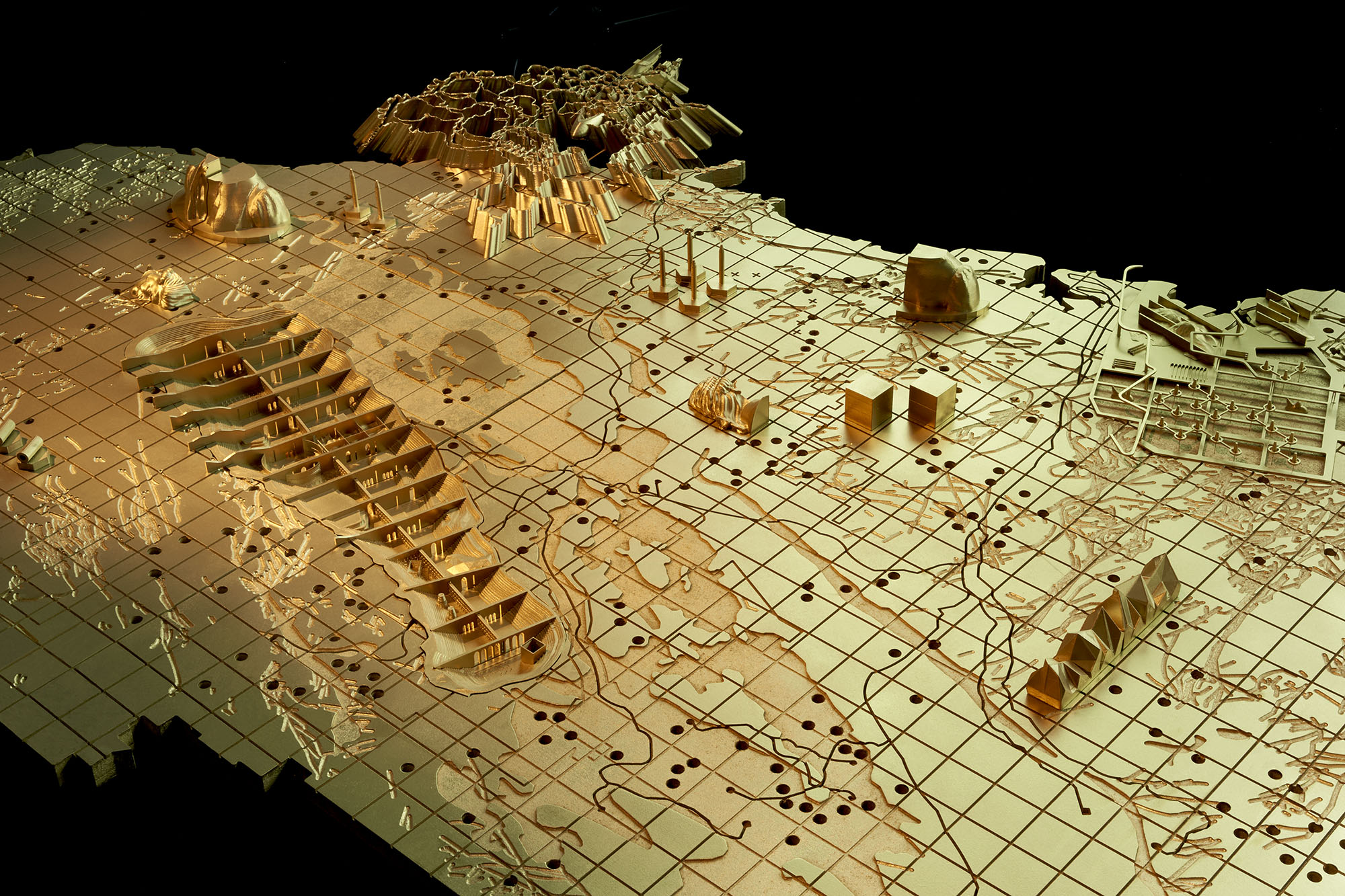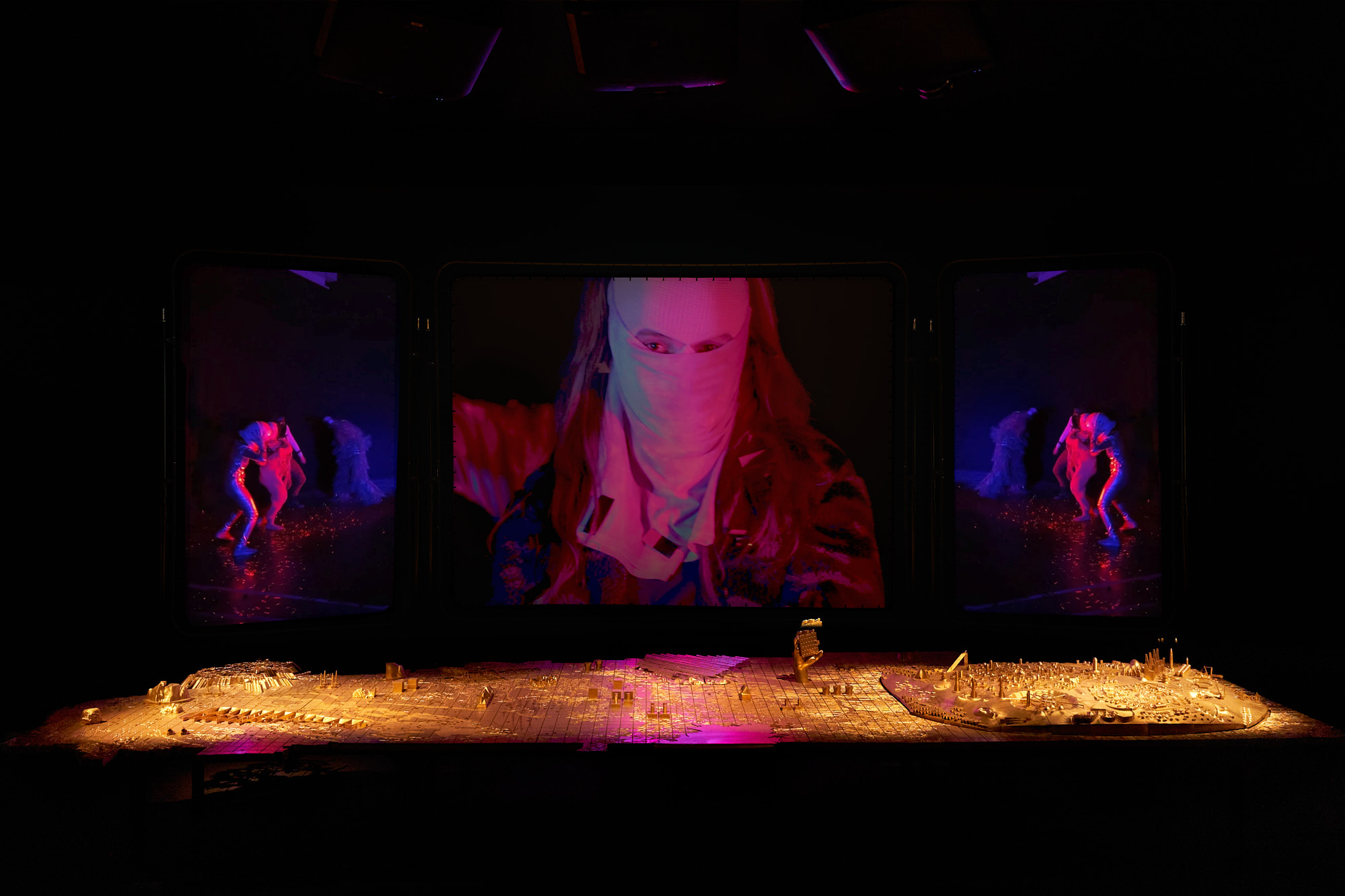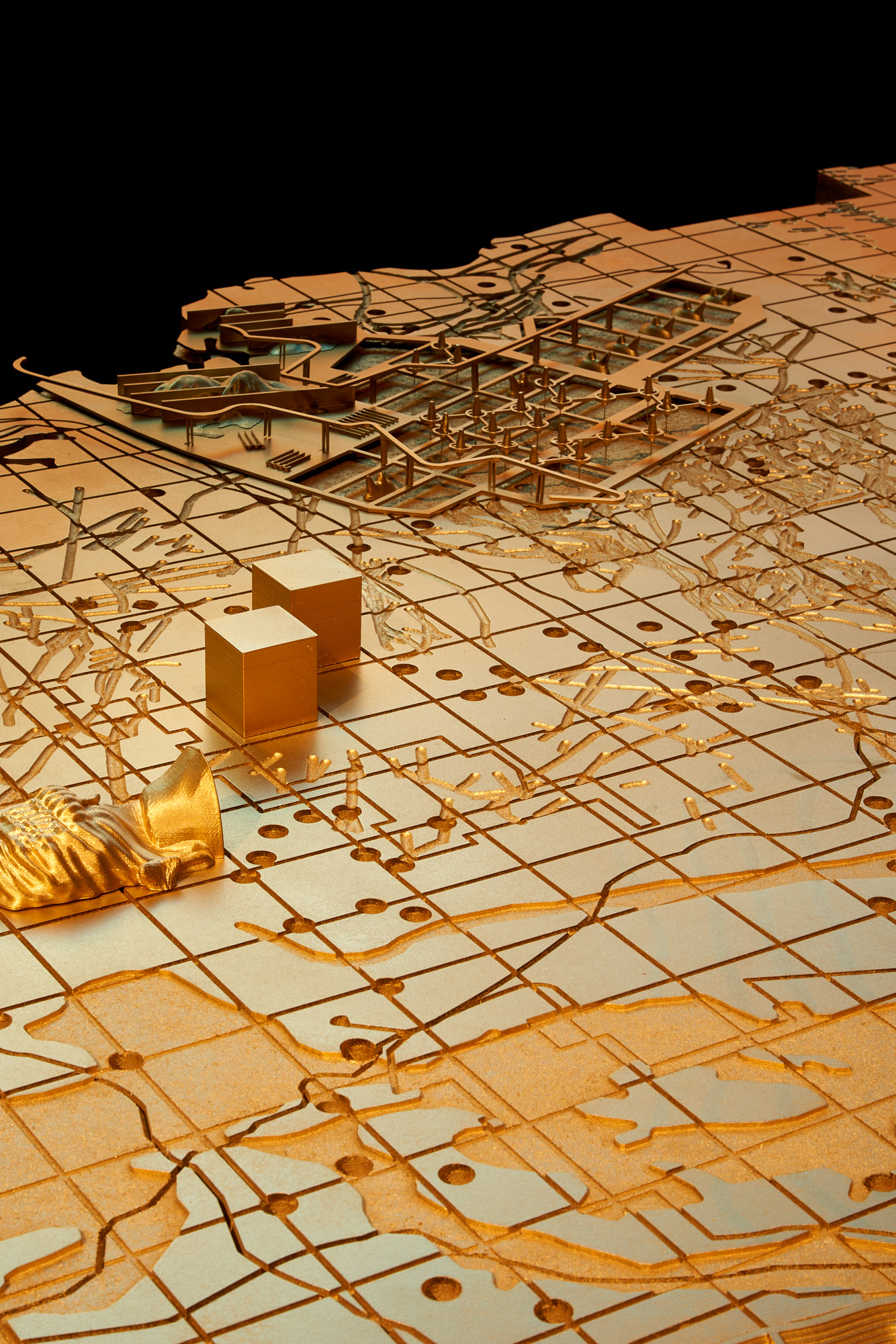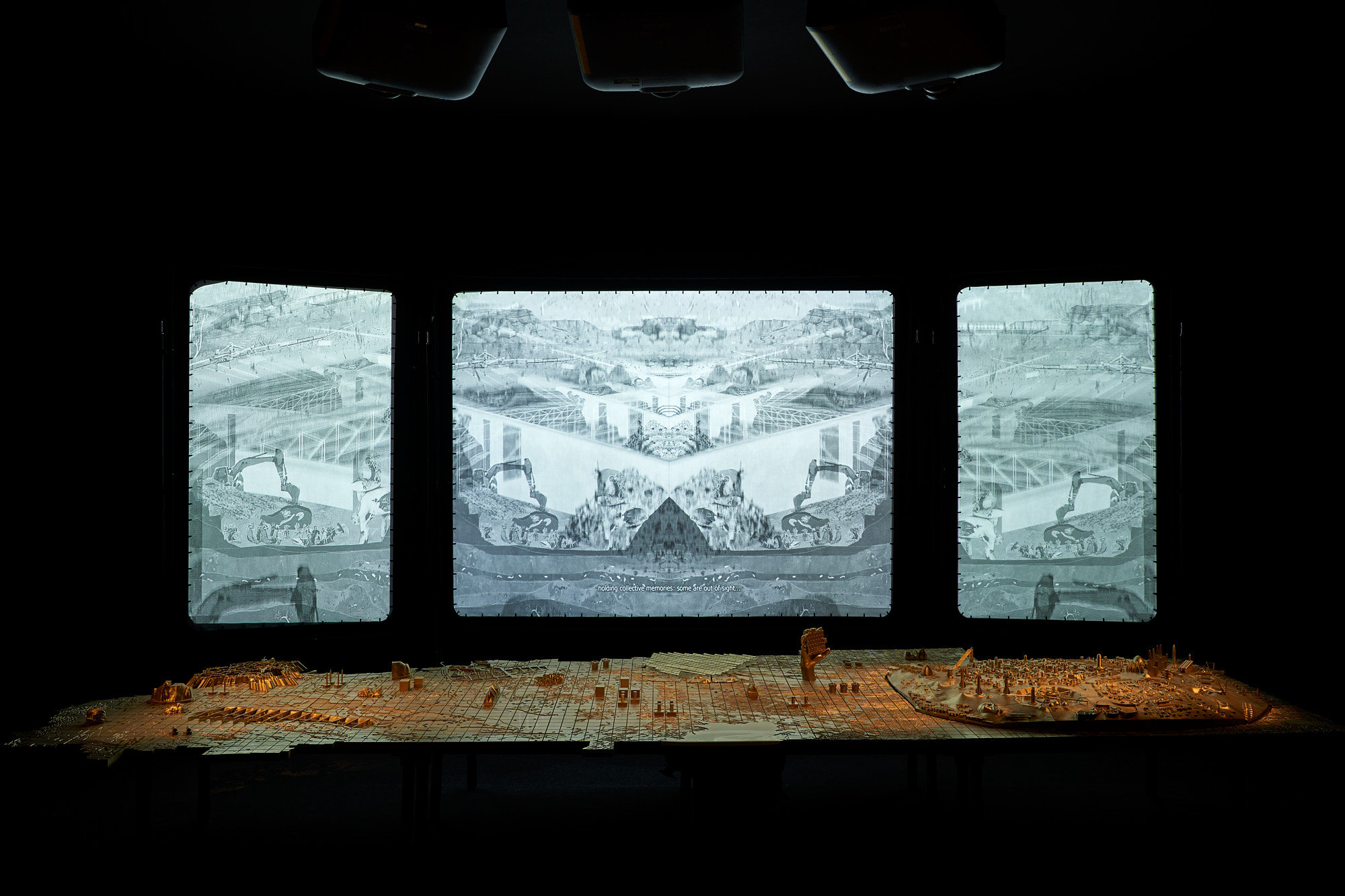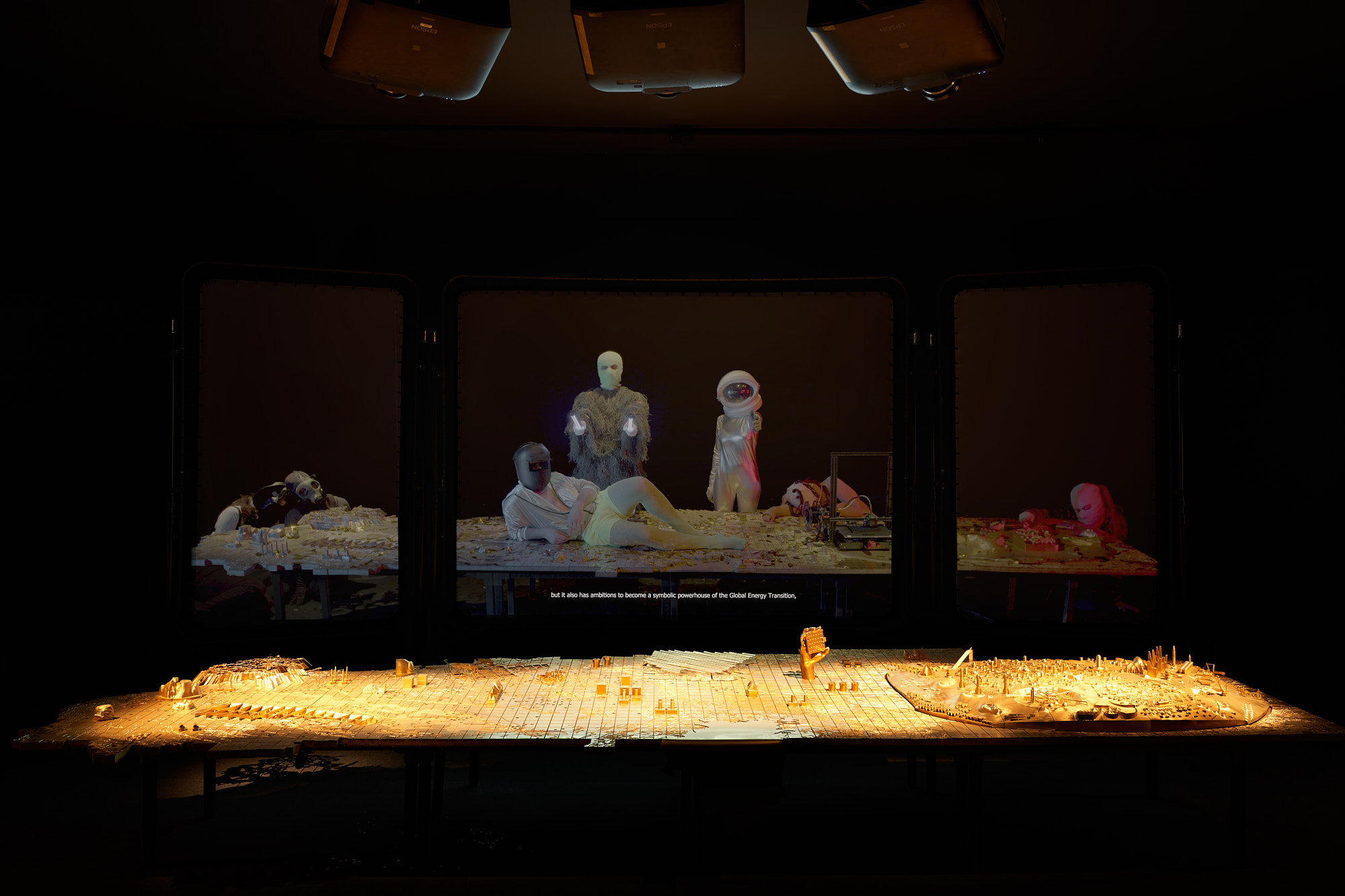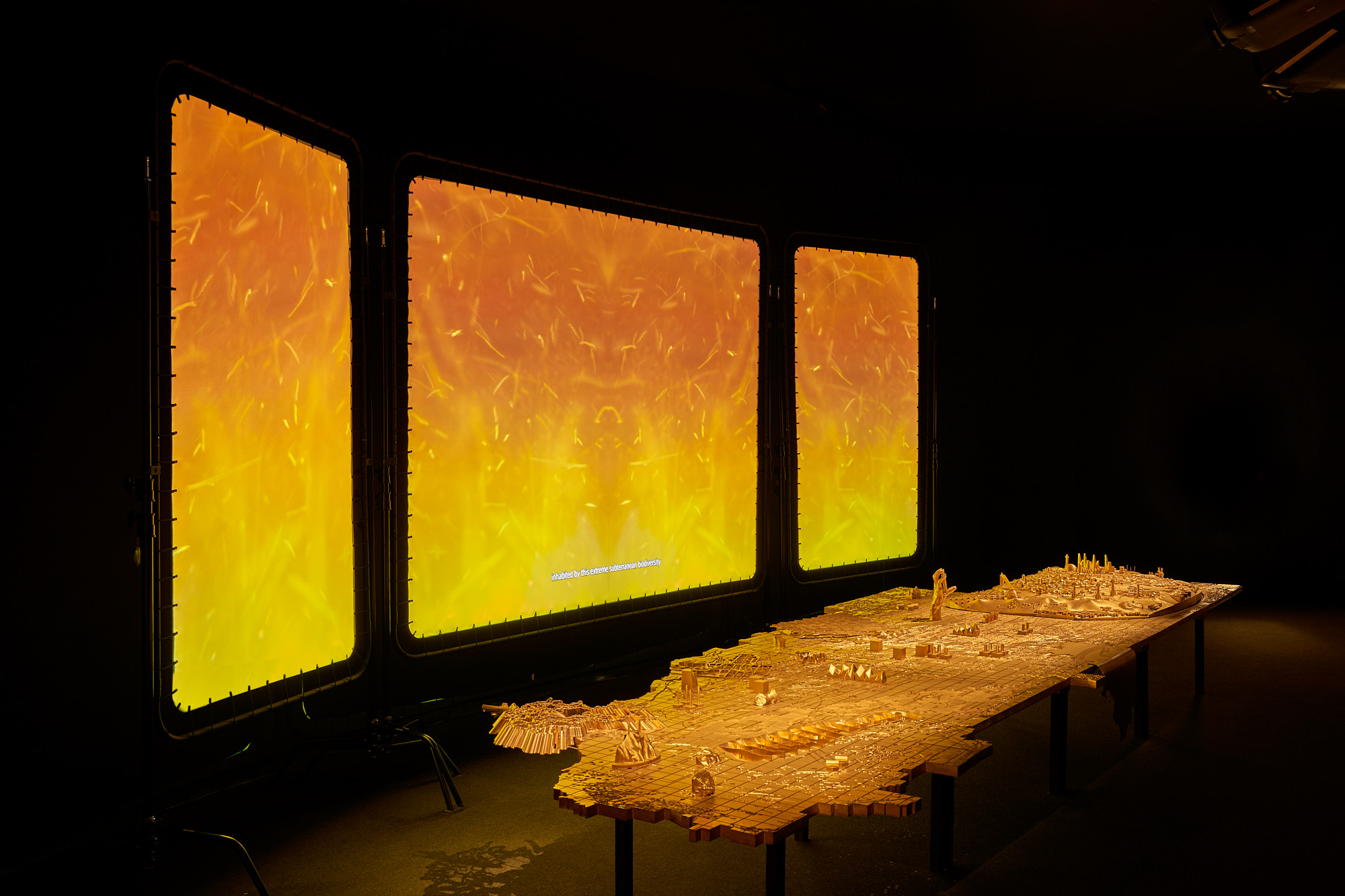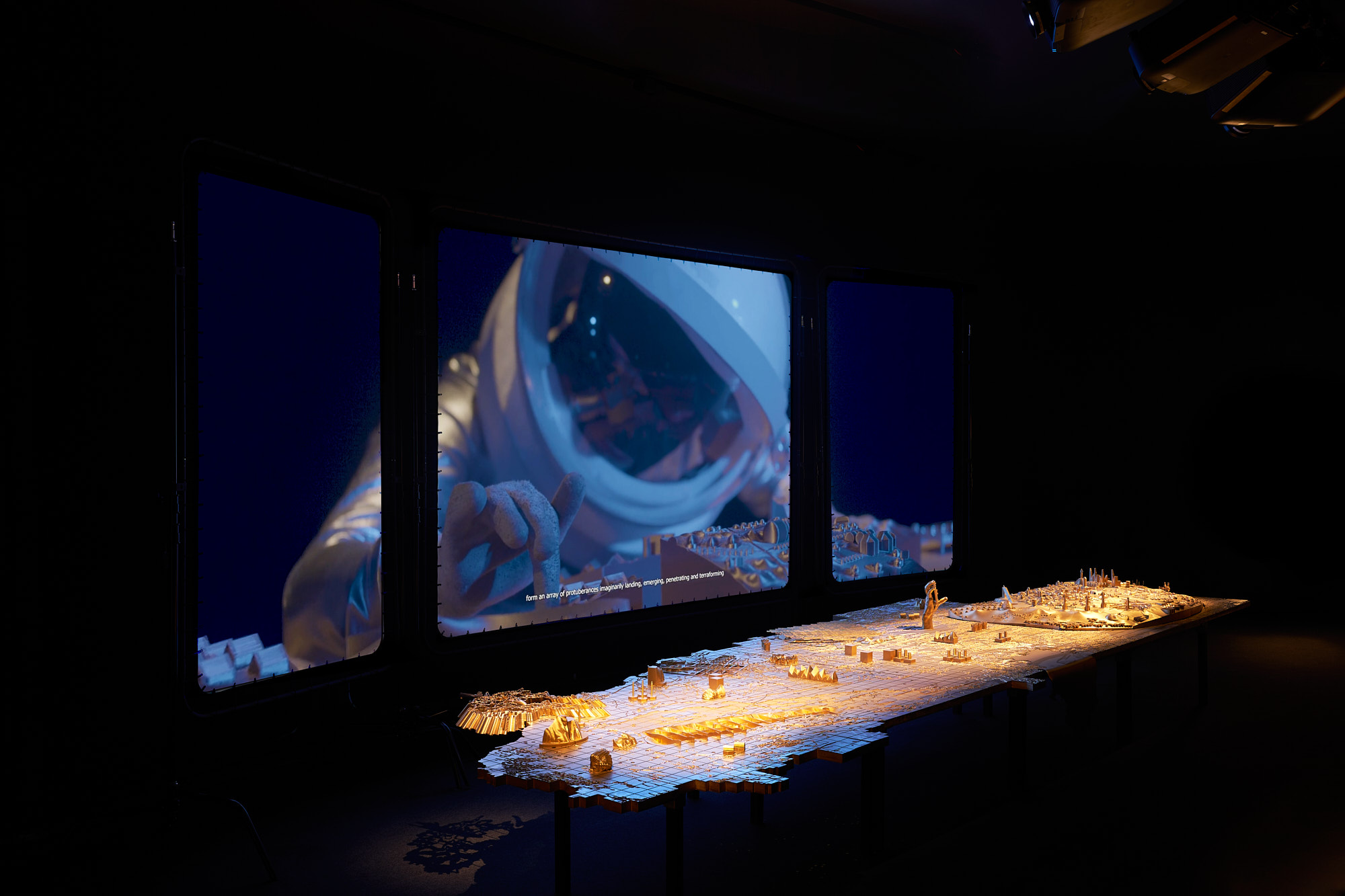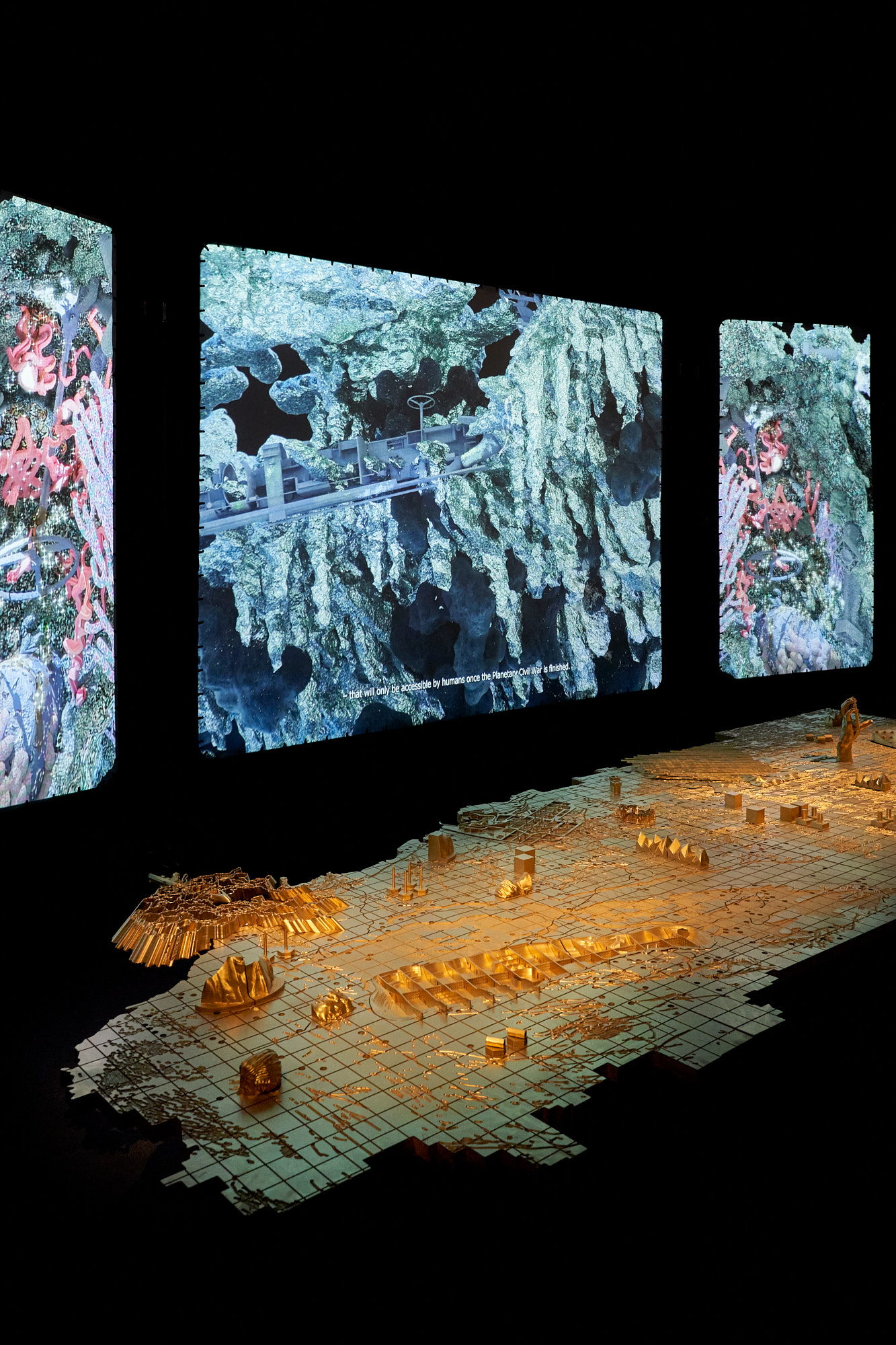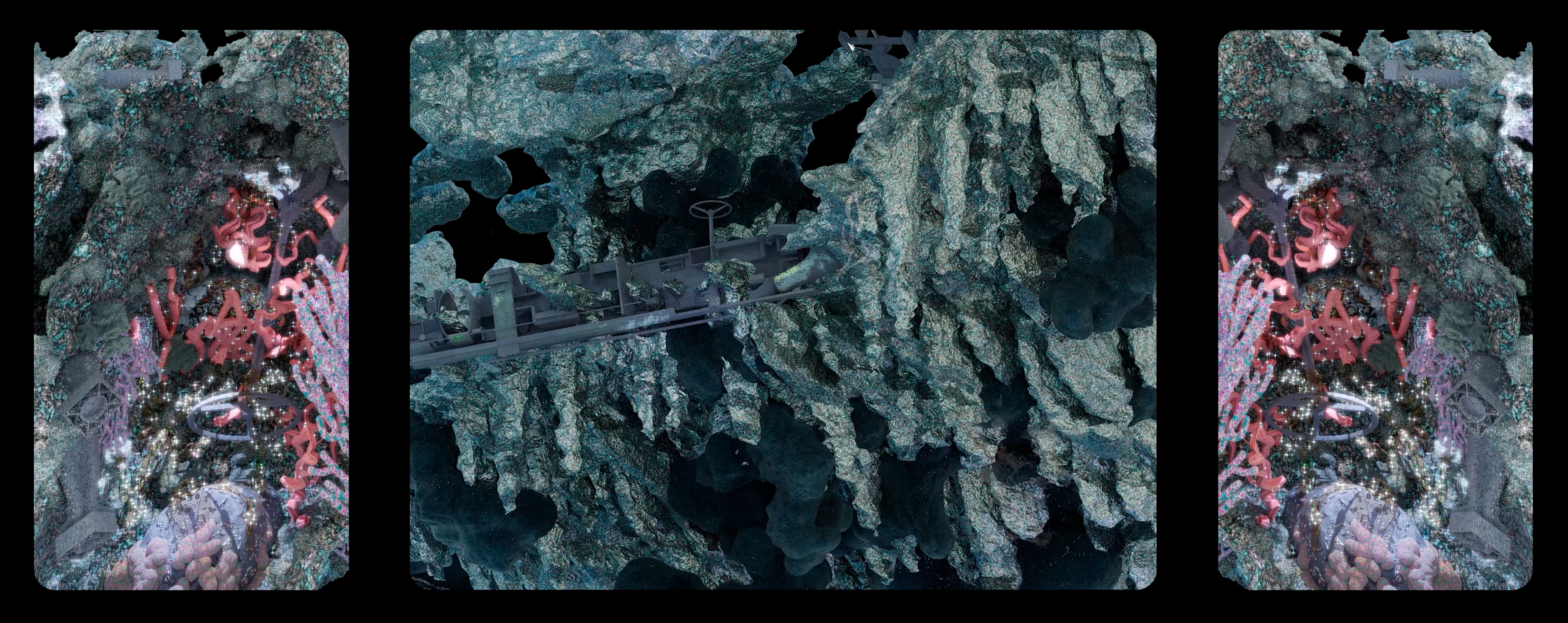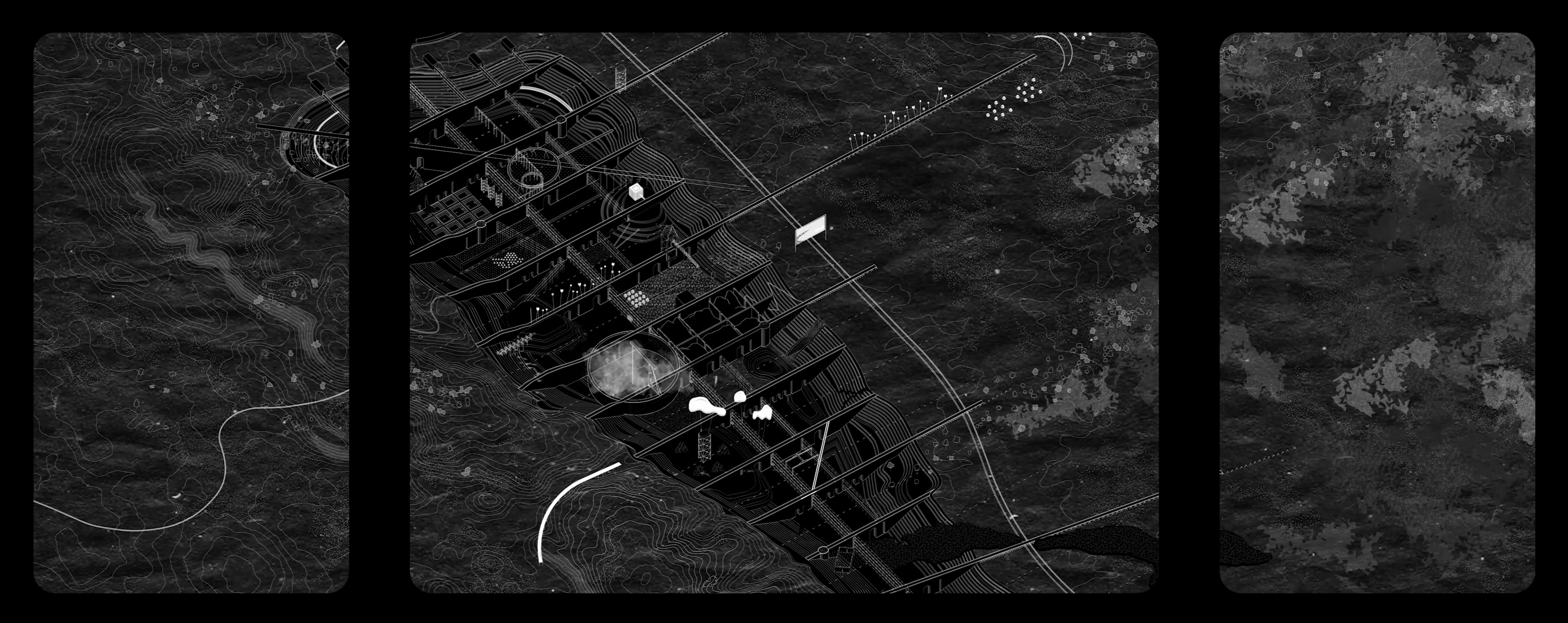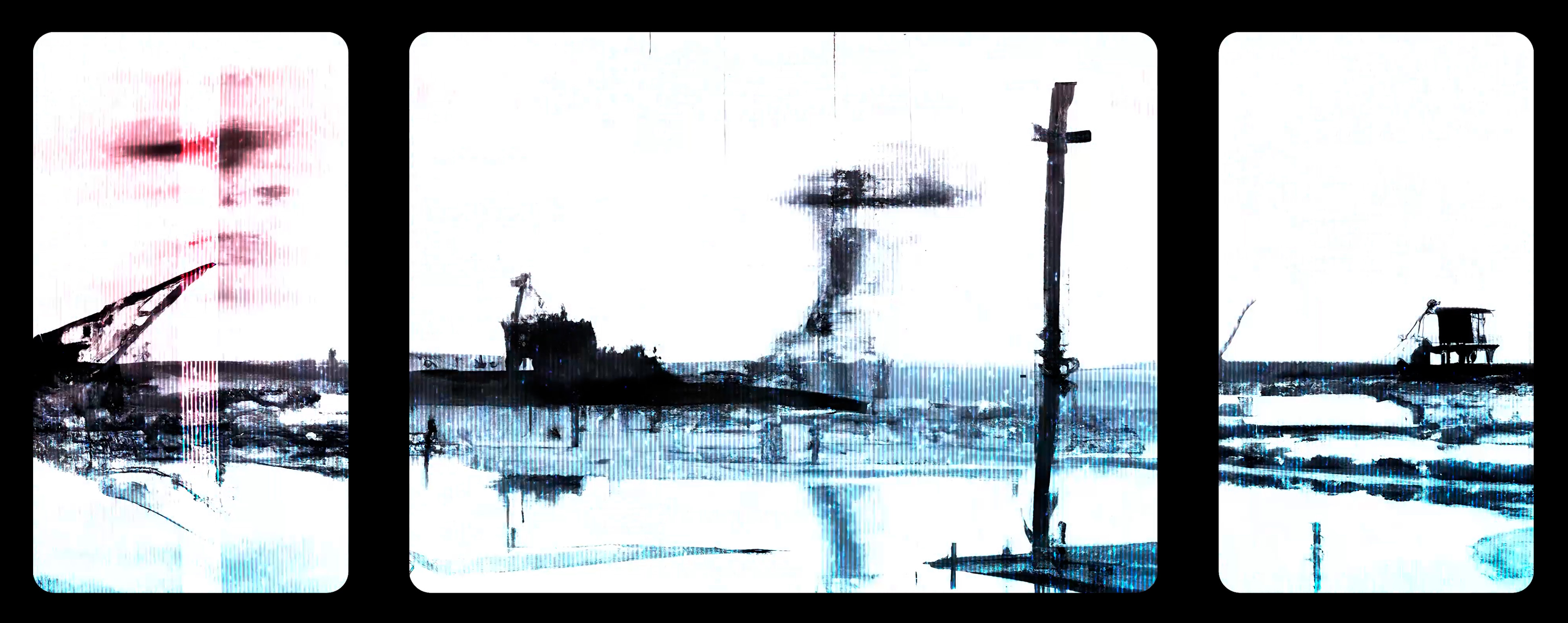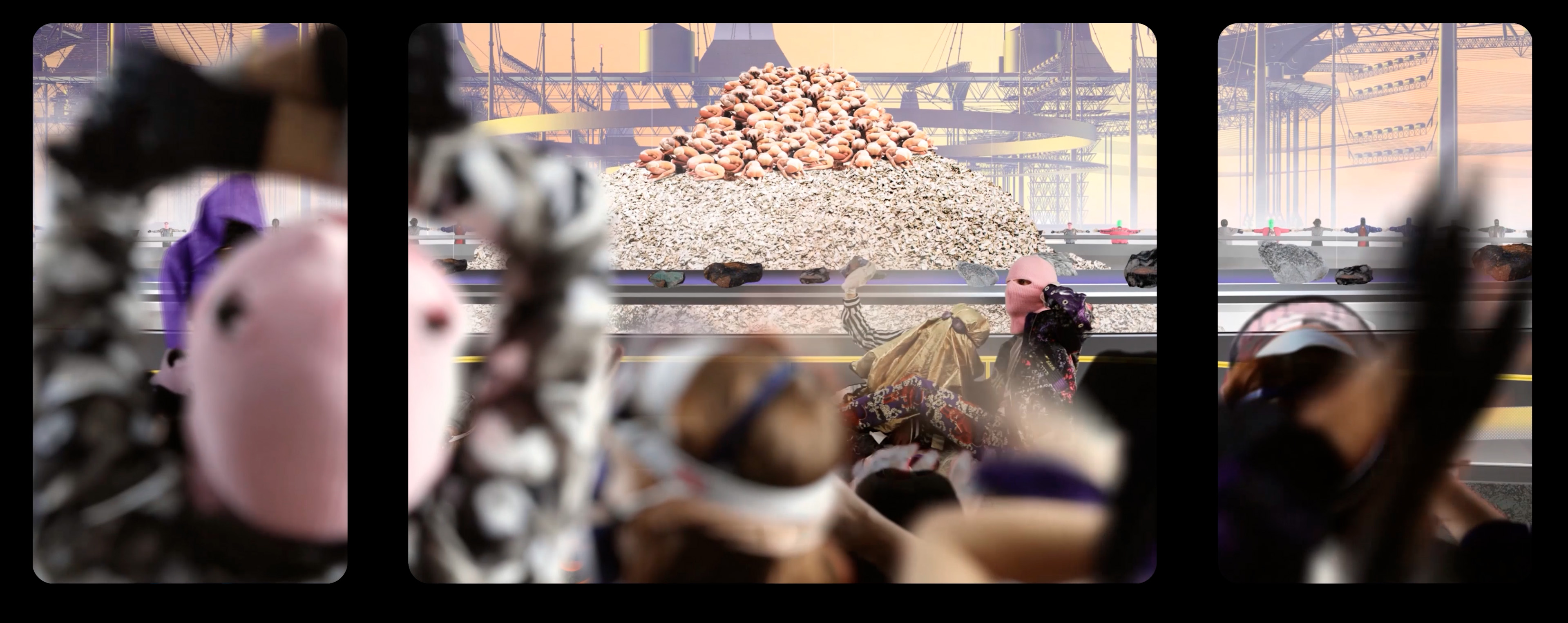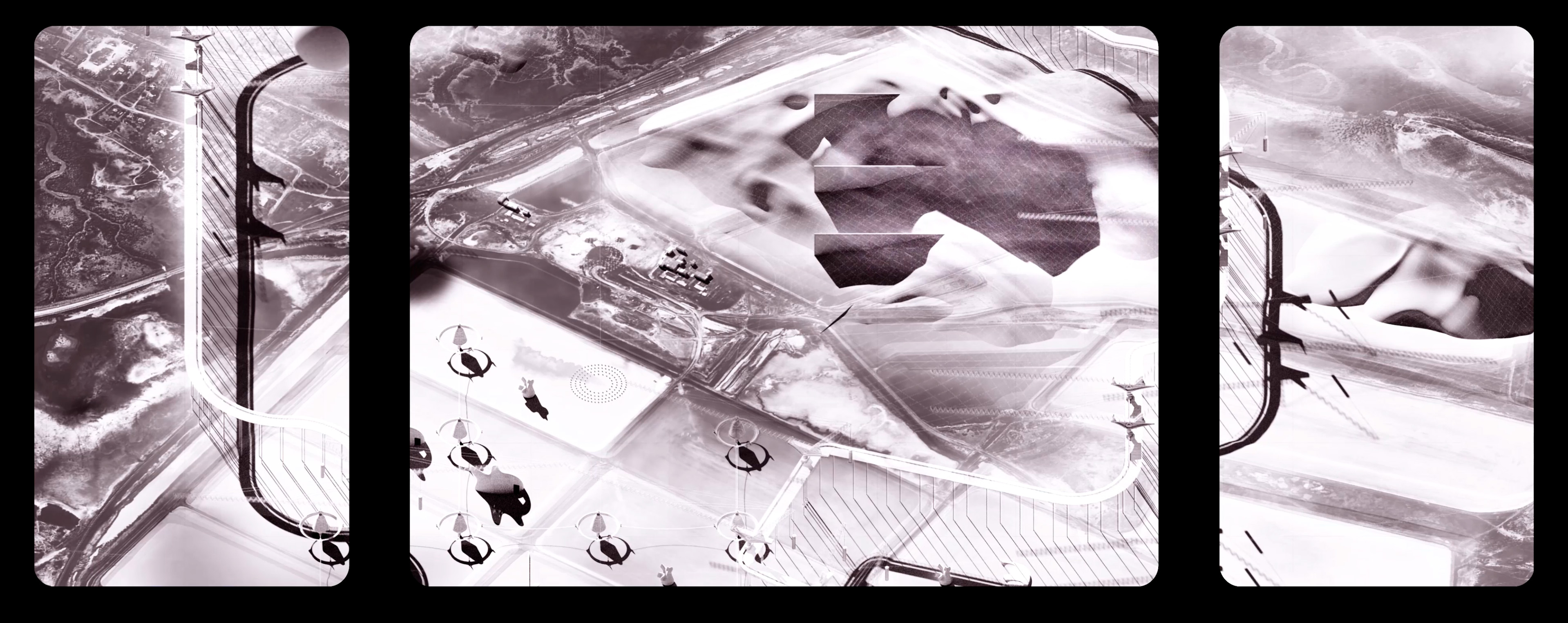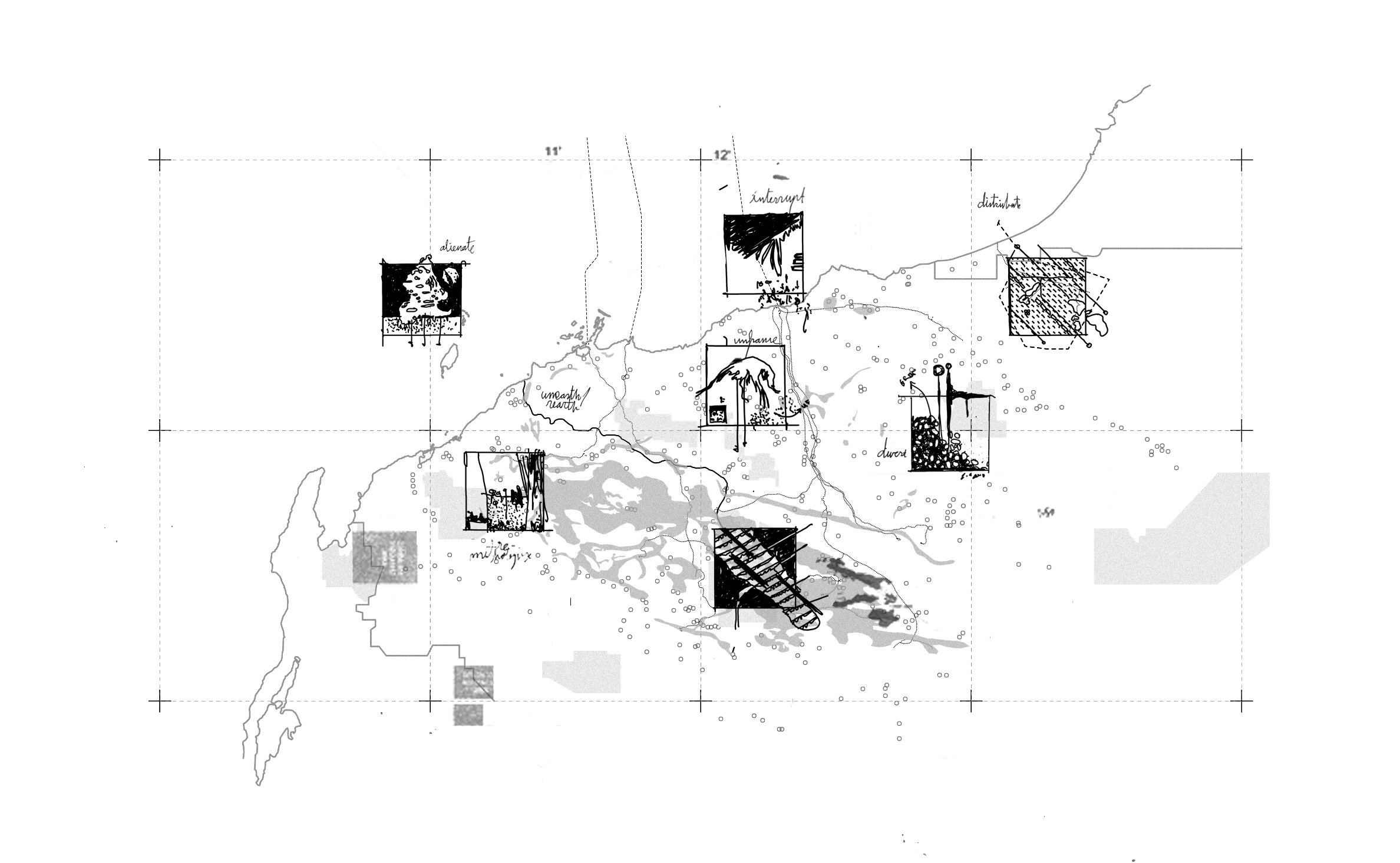The Pilbara is an immense, arid, and thinly populated territorial crust in the north of Western Australia.
Since the first colonial incursions – just 160 years ago – the progressive “discovery” of its rich mineral deposits has transformed the region into a spatio-temporal battlefield of expulsions, explosions, and exploitation – all perpetrated in the name of the Commonwealth’s extractivist mythologies. In fact, despite its official label as “the powerhouse of the nation”, the Pilbara still suffers from significant infrastructural underdevelopment and high rates of racialized social exclusion.
Today, the long-established iron ore, gas, and petrol mining operations collide with the incursion of additional stakeholders in search of its recently “discovered” reserves of lithium and other rare earth minerals. The abundance of these coveted metals, the extreme exposure to solar radiation and wind, and privileged access to the Indian Ocean position the Pilbara at the core of the planetary energy transition – a 21st-century green-gold rush.
Pilbara Interregnum: Seven Political Allegories takes the opportunity offered by the current energy paradigm shift to put in crisis the extractivist, colonial, and capitalist mythologies that are turning this region – and the rest of the planet – into sacrificed areas. Departing from seven unresolved territorial disputes, the project acknowledges the Pilbara as a centre-stage-territory where the most radical (geo)political and epistemological battles of our time are already taking place. Seven political allegories re-stage the Pilbara by moving it away from a resources-extraction battlefield into an epistemological war of political imagination.
——————————————————-
Pilbara Interregnum: Seven Political Allegories has been commisioned for the Biennale Architettura 2023 in Venice, curated by Lesley Lokko under the title “The Laboratory of the Future”, where it was exhibited from 20 May to 26 November 2023.
The full project was also ehibited at:
— Luleå Biennial (Luleå, Sweeden), curated by Aude Christel Mgba and Bruno Alves de Almeida. (2 March - 26 May 2024)
— Dilalica Art Gallery (Barcelona, Spain) curated by Sergi Álvarez and Sara Castillo (18 Nov - Dec 2024)
The project has also been featured at:
— Mês da Arquitetura da Maia (Fórum da Maia, Portugal) curated by Ana Resende and Nuno Melo Sousa. (5 Oct - 3 Nov 2024)
— The Sixth Sphere, at the Exhibitions at Rice program (Rice School of Architecture, Texas, US), curated by Brittany Utting. (28 Oct 2024 – 14 Feb 2025)
——————————————————-
EXTENDED CREDITS:
Creative Direction
GRANDEZA STUDIO:
Amaia Sánchez-Velasco
Jorge Valiente Oriol
Gonzalo Valiente Oriol
Authorial Collaborators
Caitlin Condon
Laura Domínguez Valdivieso
James Feng
Jordi Guijarro Contreras
Raquel Vázquez Romero
Collaborators
Juan Carlos Castro-Domínguez, Fab Lab Universidad de Alicante (model fabrication)
Juan Carlos Cembreros Llopis (cinematography on stage in Alicante)
Bastián Durán Silva (model making and logistical support)
Diego Lipnizky (sound design)
Esteban Lloret-Linares (film editing support)
Bruno Salas (cinematography on stage in Chile)
Voiceovers
Caitlin Condon, Charles Curtin, Minhee Curtin, James Feng, Bana Hankin, Brooke Jackson, Andrea Lam, Gigi Li, Sammy Nazam, Vina Aurellia Purwantoro, Laura Touman, Gonzalo Valiente Oriol, Brooke Zhang, and Xiao Hong Zhen.
Acting
Melena Androide, Laura Domínguez Valdivieso, Jordi Guijarro Contreras, Aintzane Méndez Zalbide, Amaia Sánchez-Velasco, Jorge Valiente Oriol, Raquel Vázquez Romero.
Other Team Members
Students of “Residencias Remotas” from Andrés Bello University (UNAB) in Chile: Bastián Durán Silva, Martin Herrera Aqueveque, Claudio González Salamanca, Mitzi Muñoz Urra, Almendra Fernanda Parra Castillo, Andre Ramdohr, Pablo José Reyes Pérez, Natalia Rojas Collao, María José Vergara Sepulveda.
Installation photography
Clelia Cadamuro
Copyeditor
Emma Johnson
With the generous support of
Consorci de Museus de la Comunitat Valenciana through the program “Cultura Resident” at Centro Cultural Las Cigarreras in Alicante, Spain.
Acción Cultural Española (AC/E), Spain.
School of Architecture at the Campus Creativo of Andrés Bello University (UNAB) through the program “Residencias Remotas”, Santiago de Chile - Viña del Mar, Chile.
Fab Lab Alicante, Universidad de Alicante, Spain.
University of Technology Sydney, Australia.
University of Sydney, Australia.
BFI National Archive, UK.
